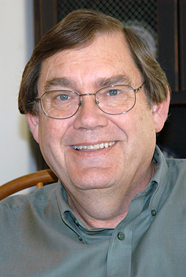Economic collapse leads people of faith to re-examine money, priorities
Several regional leaders share reflections on the impact of economics on ministry: See also stories on Dale Cockrum and Hollis Bredeweg.
 |
| Bishop Martin Wells |
Lutheran Bishop Martin Wells of the Eastern Washington Idaho Synod said the economic collapse calls for people of faith to re-examine the nature of money and how that relates to priorities in ministry.
“When the dot.com bubble burst and Wall Street funny-money evaporated, it was because unreal, unjustified trust had been placed in the market and in future gain,” Martin said. “Classical Lutheranism says “That which you ultimately trust is really your God.
“Our economic forces and greed created a false god,” he said. When our trust in that god waned because of cheating and duplicity, the market tanked. The God we worship and ultimately trust, however, does not abandon us or evaporate.”
In the last two years, the synod has experienced a 20 percent decline in mission support, from the economy, aging membership and unpopular decisions, he said.
Recognizing that people in these times are hurting, Martin calls the church to adjust. He suggests living and serving in ministry from a sense of gratitude instead of entitlement.
“Gratitude means we live life from the perspective of a glass half full instead of a glass half empty,” he said.
The Evangelical Lutheran Church in America (ELCA) Synod has in recent years supporated consolidation of some churches—in North Spokane, downtown and Spokane Valley.
“It costs less to heat one building than two,” Martin said.
At the ELCA bishops’ October 2011 convocation in Walla Walla, he said the focus will be on the nature of religion and the church in a changing American society.
“We live in a culture indifferent to the traditional claims of faith,” he said, "in contrast with the 1950s culture, in which business leaders felt they needed to attend certain churches to make social and business contacts.”
While some congregations are consolidating, the ELCA Synod is considering a new congregation in West Richland, a growing area where there is also an Islamic center and a Hindu worship center.
“We think the world is eager for historic faiths to be in conversation with one another,” Martin said.
For information, call 838-9871 or visit ewaidsynod.org.
Copyright © September 2011 - The Fig Tree




